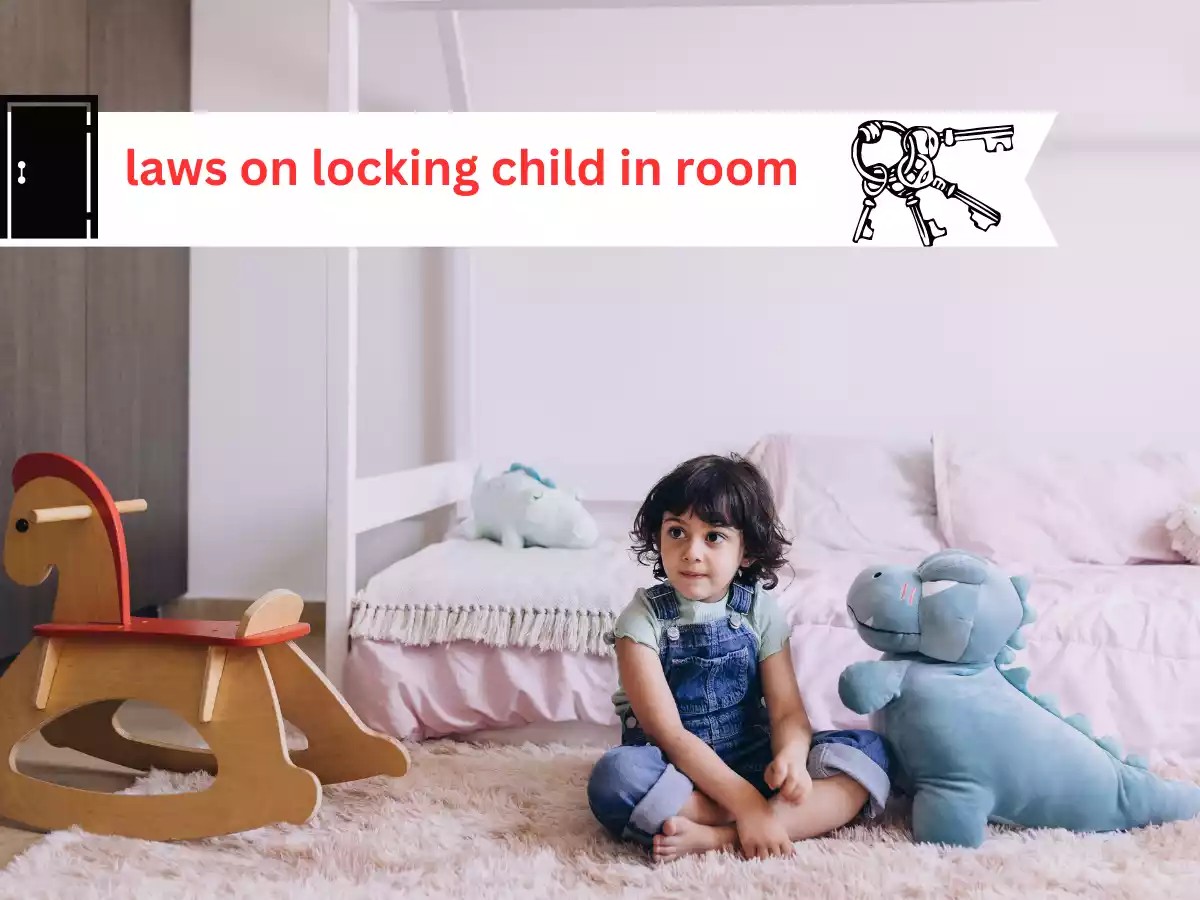Parenting comes with its share of challenges and decisions, and one topic that often sparks debate is whether it’s permissible to lock a child in a room. This article delves into the legal and ethical dimensions surrounding this issue, shedding light on the various factors that parents and guardians should consider before making such a decision.
Introduction: laws on locking child in room
Parenting involves making choices that prioritize a child’s safety, well-being, and emotional development. The topic of locking a child in a room raises important questions about the boundaries of discipline and care.
The Importance of Child Safety and Well-Being
Ensuring a Safe Environment
Creating a safe and nurturing environment is paramount to a child’s healthy growth. However, the approach to ensuring their safety needs to be balanced and respectful of their autonomy.
Balancing Safety and Autonomy
While it’s crucial to maintain a secure environment, it’s equally important to foster a child’s sense of autonomy, independence, and emotional well-being.
Understanding the Concept of Child Discipline
Effective Discipline Strategies
Discipline is an essential aspect of parenting, aimed at teaching children appropriate behavior and values. However, the methods used should be respectful and free from harm.
Avoiding Harm and Trauma
Locking a child in a room as a disciplinary measure can cause emotional harm and trauma, negatively impacting their self-esteem and trust in caregivers.
Legal Considerations
Laws Regarding Child Abuse and Neglect
Many jurisdictions have laws in place to protect children from abuse and neglect. Locking a child in a room without proper justification could potentially violate these laws.
The Role of Child Protective Services
Extreme disciplinary measures, such as locking a child in a room for extended periods, could prompt involvement from child protective services to ensure the child’s safety.
Ethical Concerns
Respecting a Child’s Dignity
Respecting a child’s dignity and treating them with kindness and empathy are essential ethical principles that should guide parenting decisions.
Promoting Positive Parent-Child Relationships
Using non-punitive discipline methods and maintaining open communication can foster a positive parent-child relationship based on trust and understanding.
Alternative Approaches to Discipline
Positive Reinforcement and Communication
Encouraging positive behavior through rewards, praise, and open communication can be more effective in teaching children desired behaviors.
Time-Outs and Calm-Down Corners
If a cooling-off period is needed, using time-outs or calm-down corners can provide children with a safe space to regain their composure without causing harm.
Seeking Professional Guidance
Consulting Child Psychologists and Experts
When facing challenges in disciplining children, seeking advice from child psychologists and experts can provide effective, non-punitive strategies.
Learning Non-Punitive Discipline Techniques
Parents can benefit from workshops and resources that teach non-punitive discipline techniques, helping them build strong connections with their children.
Educating Parents and Caregivers
Raising Awareness about Child Rights
Promoting awareness about child rights, discipline alternatives, and the potential harm of punitive measures can contribute to informed parenting decisions.
Providing Resources on Effective Parenting
Offering resources, workshops, and support networks for parents can empower them to make thoughtful and informed choices in child-rearing.
Conclusion
Locking a child in a room as a disciplinary measure raises complex legal and ethical considerations. Parents and caregivers should prioritize a child’s safety, well-being, and emotional development while seeking non-harmful discipline methods that promote positive parent-child relationships.
FAQs
- Is it legal to lock a child in a room as a form of discipline?
The legality of such actions varies by jurisdiction, but many jurisdictions have laws against child abuse and neglect. - What are the potential consequences of locking a child in a room?
Locking a child in a room can cause emotional harm, trauma, and potential involvement from child protective services. - Are there alternative discipline methods to consider?
Positive reinforcement, open communication, time-outs, and calm-down corners are more respectful alternatives. - Should parents seek professional guidance on discipline strategies?
Consulting child psychologists and experts can provide valuable insights into effective and non-punitive discipline techniques. - How can parents balance child safety and autonomy in discipline?
Balancing safety involves fostering autonomy and positive parent-child relationships while avoiding harmful disciplinary measures.
Contents
- 1 Introduction: laws on locking child in room
- 2 The Importance of Child Safety and Well-Being
- 3 Understanding the Concept of Child Discipline
- 4 Legal Considerations
- 5 Ethical Concerns
- 6 Alternative Approaches to Discipline
- 7 Seeking Professional Guidance
- 8 Educating Parents and Caregivers
- 9 Conclusion
- 10 FAQs























